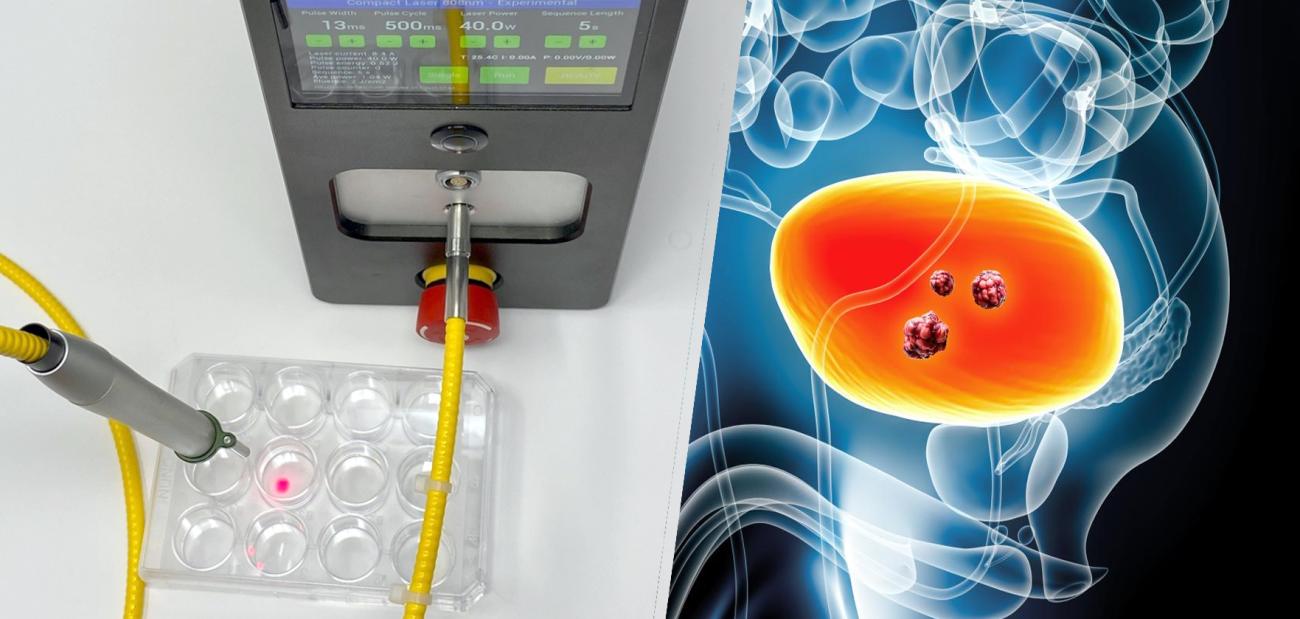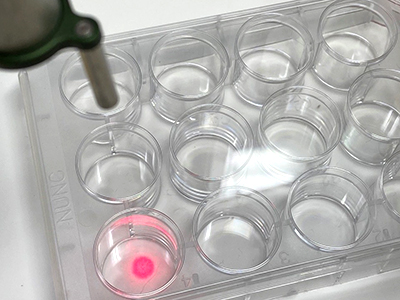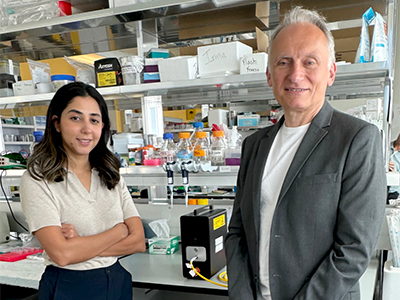
A novel photothermal therapy device shows promise as a non-invasive means of targeting cancer cells and enhancing immunotherapies.
A pulsed laser therapy approach designed by Vancouver Coastal Health Research Institute researcher Dr. Mads Daugaard and his team has shown promise as a first step to cancer cell destruction before patients undergo immunotherapy to boost their immune system’s defences against the cancer.

Daugaard’s study — published in Small — outlines the results of their non-invasive photothermal therapy (PTT) prototype device used to target and destroy bladder cancer cells. The device emits electromagnetic radiation in the near-infrared light, which is invisible to the human eye.
“PPT creates irreversible cell damage, but it has not been widely used in cancer treatment because of its association with negative side effects, such as burns, which we were able to virtually eradicate.”
“We adjusted the wavelength of the laser to be in the far red, or infrared light region, to enable us to use a high-powered laser on the skin while dramatically reducing the incidence of burns,” explains Daugaard.

“With long-pulsed PPT, we were able to create a very high temperature within a few micrometres around the gold nanorods,” says Daugaard. “This severe heat is able to break the cell membrane, leading to violent cancer cell death.”
Non-invasively targeting cancer cells and boosting immune response
The research team compared the novel PPT device on a continuous wave versus a pulsed setting. They found that a long-pulsed setting further reduced the over-heating effects of the laser on non-cancerous tissues to prevent unwanted skin burns. The team noted that the optimal laser setting — experimented on for the first time with the team’s prototype laser — encompassed four pulses of 100 milliseconds each.

Used for decades on superficial skin cancers, such as the removal of melanoma moles on the skin, miniature PPT lasers can be threaded through the intestines, throat or arteries to shorten the gap between them and target cancer cells.
Cell destruction in the body from PPT application causes the release of damage-associated molecular pattern molecules (DAMPs), which trigger the body’s immune system to send immune cells to the damaged area. When combined with immunotherapeutic medication, long-pulsed PPT and DAMPs supercharge the immune system response, shining a spotlight on the cancerous region and enhancing the body’s ability to mount an attack against affected cells without excessive or unwanted healthy cell destruction.
“Our data promote long-pulsed PTT as a safe and effective strategy for enhancing therapeutic responses and bladder cancer targeting, while minimising unwanted tissue damage.”
“This could be a highly useful therapy for a variety of cancers, including potentially metastatic cancer, in which the cancer spreads to other parts of the body,” states Daugaard.


